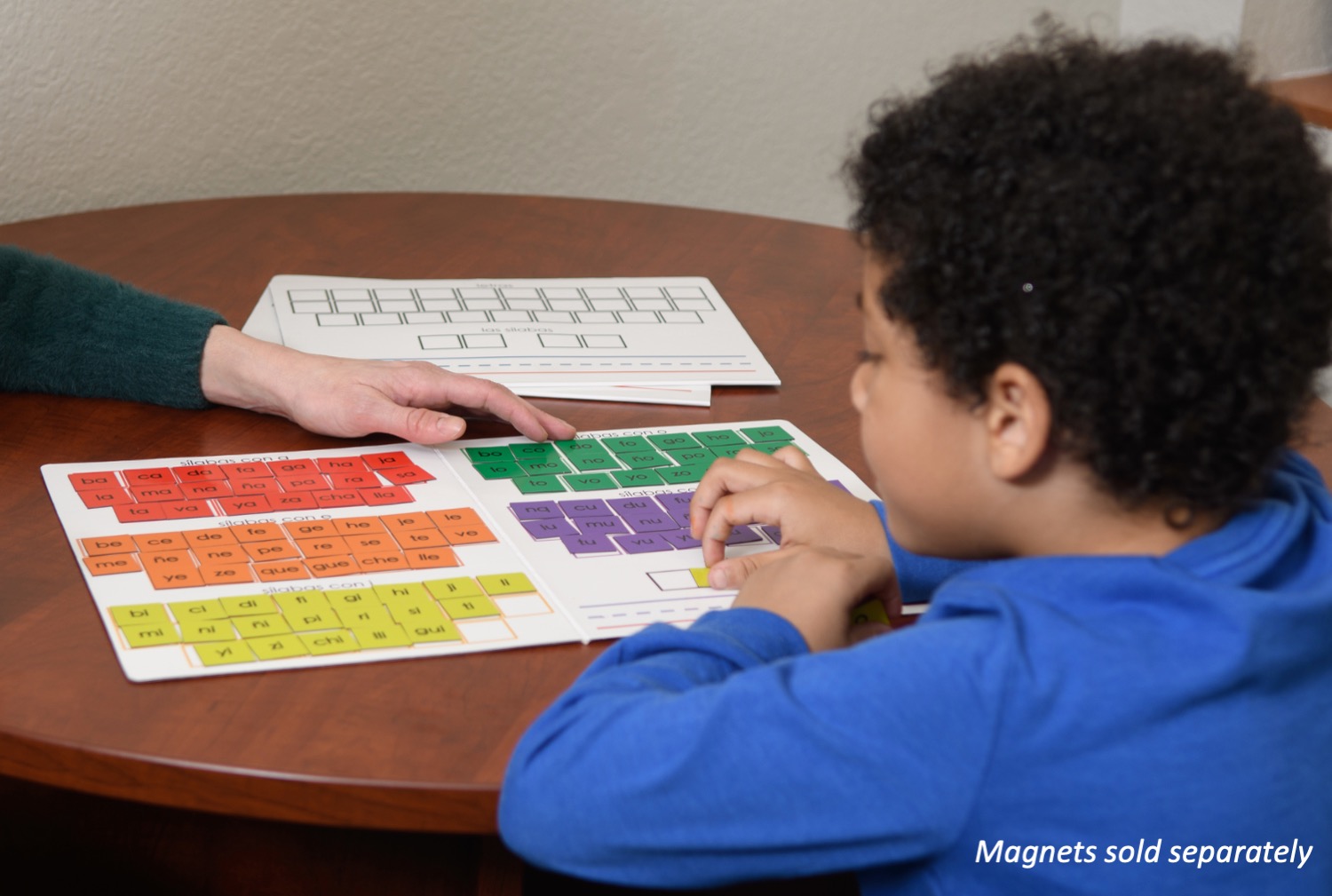In the world of education, fostering strong literacy skills is paramount for student success. Literacy serves as the cornerstone of all academic learning and life skills, enabling students to access and engage with a wide array of information and ideas. One of the most effective methods in developing these skills is through phonics. Phonics serves as the foundation for reading proficiency, helping students decode words, understand their meanings, and enhance their reading fluency. This foundational skill not only aids in reading but also supports writing, spelling, and overall language development. In this article, we will explore how phonics supports literacy growth and why it is essential in building strong reading skills.
Understanding Phonics and Its Importance
Phonics is a method of teaching reading that emphasizes the relationship between sounds and their spellings. It is an integral part of literacy instruction that helps learners recognize the sounds within words and understand how they correspond to written letters and letter combinations. This understanding forms the bedrock of reading development, allowing students to decipher written language efficiently.
The Basics of Phonics
Phonics instruction involves teaching the sounds of the letters, known as phonemes, and how these sounds combine to form words. This process is vital because it provides students with the skills necessary to approach unfamiliar words with confidence. By learning phonics, students gain the ability to sound out unfamiliar words, which is a critical skill in developing reading fluency. Additionally, phonics instruction helps in the development of spelling skills, as students learn to associate specific sounds with letters and letter patterns.
Why Phonics Matters in Literacy
Phonics is crucial because it lays the groundwork for reading comprehension and fluency. A strong phonics foundation enables students to move beyond mere decoding to understanding and interpreting texts. Without a firm grasp of phonics, students may struggle with reading, leading to gaps in understanding and frustration. This struggle can hinder their motivation to read, affecting their academic progress and confidence. By mastering phonics, students can confidently tackle new words and texts, ultimately boosting their literacy skills. This confidence translates into improved academic performance and a greater willingness to engage with complex material.

Phonics and Reading Skills
The connection between phonics and reading skills is undeniable. Phonics instruction equips students with essential tools to become proficient readers. These tools are not only critical in early education but continue to support learners throughout their academic journey.
Decoding and Word Recognition
Decoding is the ability to translate written words into spoken language. Phonics instruction helps students break down words into their component sounds, enabling them to decode unfamiliar words with ease. This skill is essential for reading fluency and comprehension, as it allows students to read smoothly and accurately. As students become proficient in decoding, they can focus more on the meaning of texts rather than the mechanics of reading, enhancing their overall reading experience.
Building Vocabulary
Phonics also plays a vital role in vocabulary development. As students learn to decode words, they are exposed to new vocabulary, which expands their language repertoire. This exposure is crucial for developing both receptive (understanding) and expressive (speaking and writing) language skills. A rich vocabulary is crucial for understanding complex texts and communicating effectively. Students with strong vocabularies are better equipped to express their ideas clearly and engage in higher-level thinking activities.
Enhancing Reading Fluency
Reading fluency refers to the ability to read text accurately, quickly, and with expression. Phonics instruction helps students develop fluency by providing them with the skills to recognize words automatically. This automaticity frees cognitive resources, allowing students to focus on comprehension rather than decoding each word, leading to a more enjoyable reading experience. Fluent readers are more likely to read for pleasure, which further reinforces their literacy skills and fosters a lifelong love of reading.
The Role of Phonics in Literacy Growth
Phonics is not just about learning to read; it is about fostering overall literacy growth. By supporting students in developing strong reading skills, phonics contributes to their success in all areas of education. This comprehensive development is essential for preparing students for the demands of an ever-evolving world.
Early Literacy Development
Phonics instruction is particularly important in early literacy development. By introducing phonics at a young age, educators can set the stage for future reading success. Early phonics instruction helps children develop the foundational skills needed to become proficient readers. These early skills are critical for preventing reading difficulties and ensuring that all students have the opportunity to achieve academic success.
Supporting Struggling Readers
Phonics is also beneficial for struggling readers. For students who face challenges in reading, targeted phonics instruction can provide the support they need to overcome their difficulties. This targeted approach can help identify specific areas where students need additional practice and reinforcement. By focusing on phonics, educators can help struggling readers build confidence and improve their reading skills. This support is crucial for closing literacy gaps and ensuring that all students have the opportunity to succeed.
Promoting Lifelong Literacy
Phonics is not just a tool for learning to read; it is a foundation for lifelong literacy. By mastering phonics, students gain the skills needed to navigate complex texts and engage with written content throughout their lives. These skills are essential for academic success and for participating fully in a literate society. Phonics instruction sets the stage for academic success and a lifelong love of reading. This lifelong literacy is essential for personal growth, career success, and informed citizenship.

Implementing Effective Phonics Instruction
To maximize the benefits of phonics, it is essential to implement effective phonics instruction in the classroom. Here are some strategies for successful phonics teaching that educators can use to enhance literacy outcomes.
Systematic and Explicit Instruction
Effective phonics instruction is systematic and explicit. This means teaching phonics in a structured and sequential manner, with clear explanations and practice opportunities. Systematic instruction ensures that students build on prior knowledge and develop a comprehensive understanding of phonics. By providing explicit instruction, educators can ensure that students understand the connections between sounds and spellings. This clarity is essential for helping students apply their phonics skills to real reading situations.
Integrating Phonics with Other Literacy Activities
Phonics should not be taught in isolation. Instead, it should be integrated with other literacy activities, such as reading, writing, and speaking. This integrated approach helps reinforce phonics concepts and demonstrates their relevance to real-world reading and communication. By incorporating phonics into a comprehensive literacy program, educators can reinforce phonics skills and promote overall literacy growth. This holistic approach ensures that students see the connections between phonics and other aspects of literacy, enhancing their engagement and understanding.
Using Engaging and Interactive Methods
Phonics instruction should be engaging and interactive. Utilizing games, songs, and hands-on activities can make phonics learning fun and memorable. These engaging methods capture students’ interest and motivate them to participate actively in their learning. By creating an engaging learning environment, educators can motivate students to actively participate in their phonics education. Active participation is key to deep learning and the retention of phonics skills.
Conclusion
Phonics is a powerful tool in building strong literacy foundations. By teaching students the relationship between sounds and spellings, phonics supports the development of reading skills, vocabulary, and fluency. These skills are essential for academic success and for participating fully in a literate society. Through systematic and engaging instruction, phonics lays the groundwork for lifelong literacy success. As educators, it is our responsibility to ensure that phonics remains an integral part of literacy education, empowering students to become confident and proficient readers.
Phonics is not just about learning to read; it is about opening doors to a world of knowledge and opportunities. By investing in phonics instruction, we invest in the future of our students, equipping them with the skills they need to thrive in an increasingly literate world. This investment pays dividends in the form of empowered, knowledgeable, and capable individuals who are ready to meet the challenges of the future.
Contact PDX Reading Specialist for a Comprehensive Assessment
If you are looking to enhance your child’s literacy skills through effective phonics instruction, we encourage you to reach out to the PDX Reading Specialist. Our team is dedicated to providing comprehensive assessments and tailored support to help your child succeed in their reading journey. Don’t wait—contact us today to learn more about how we can assist in building a strong literacy foundation for your child!


